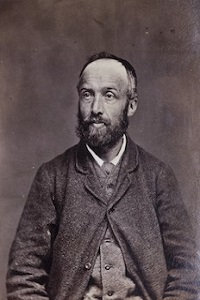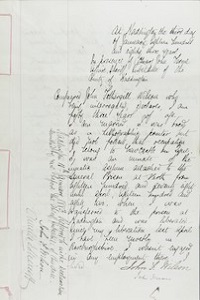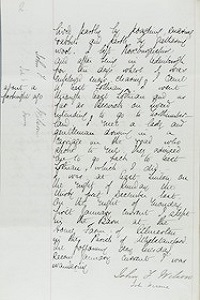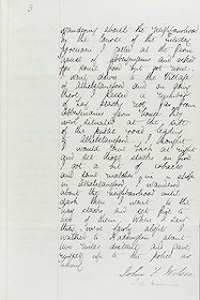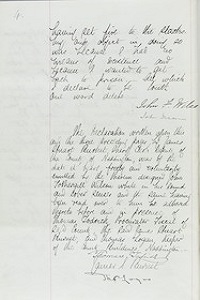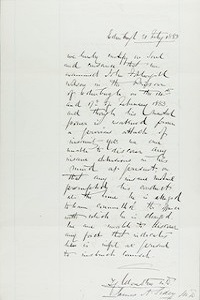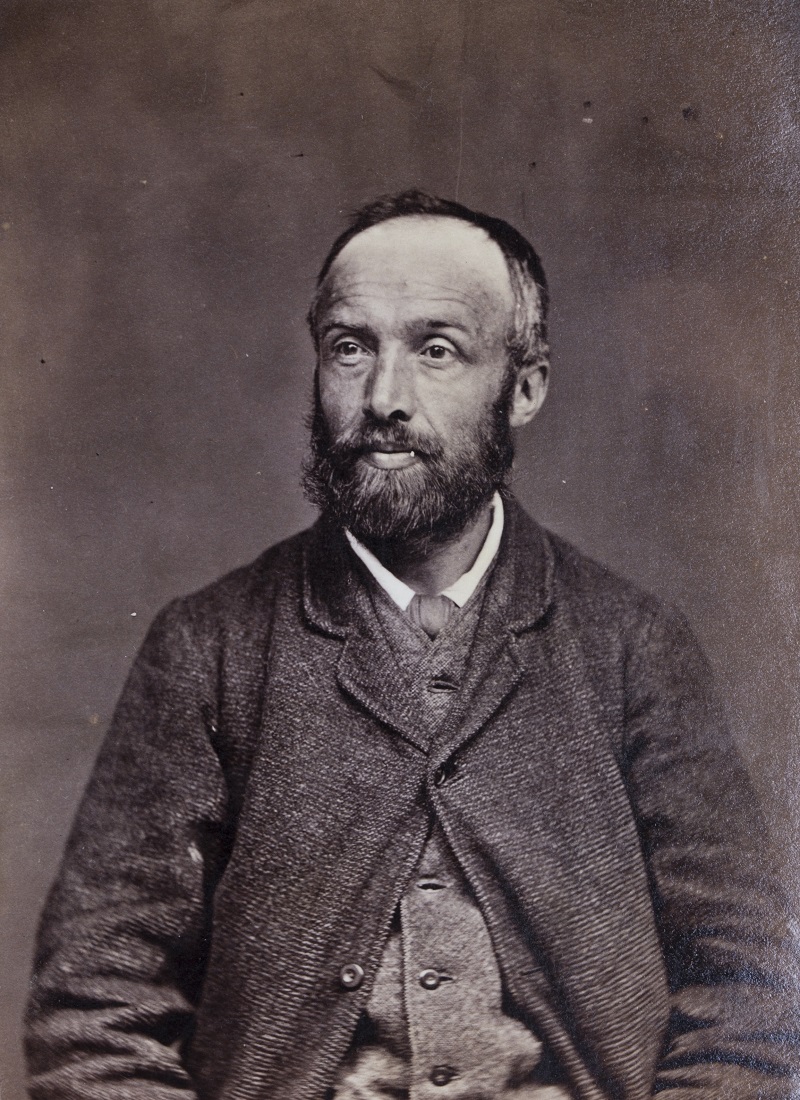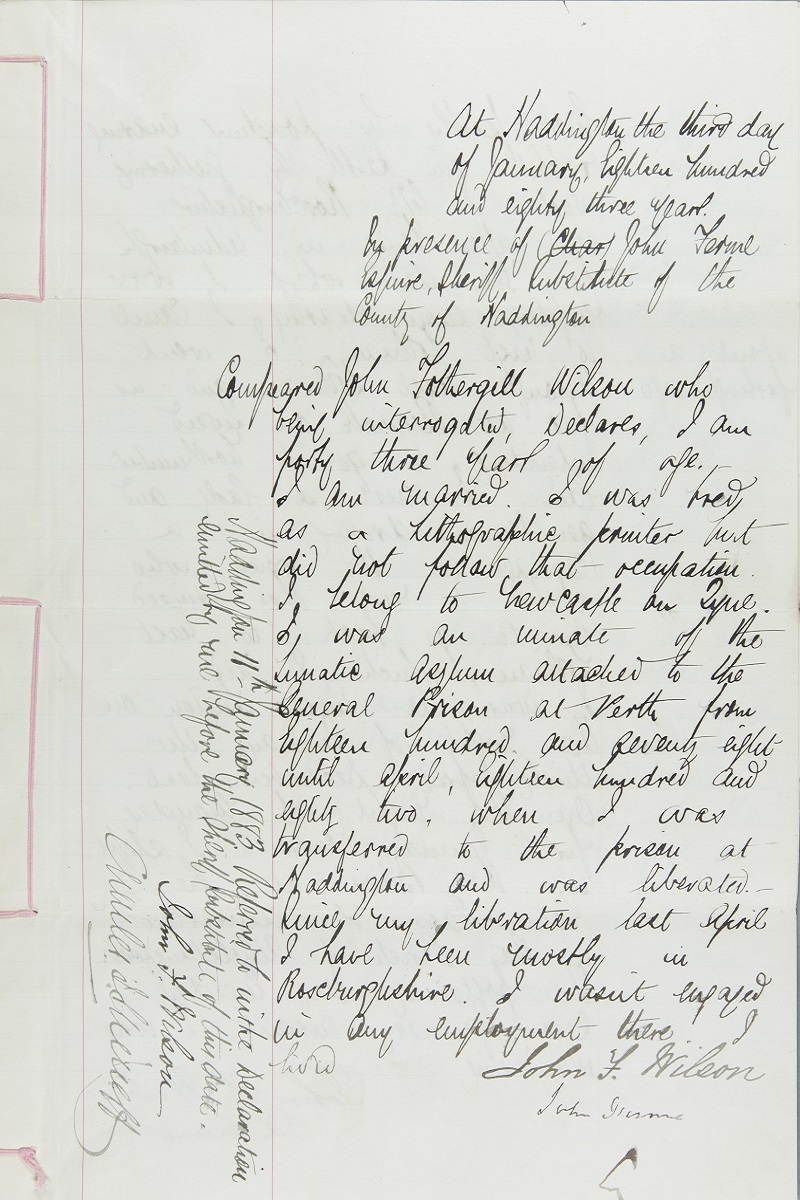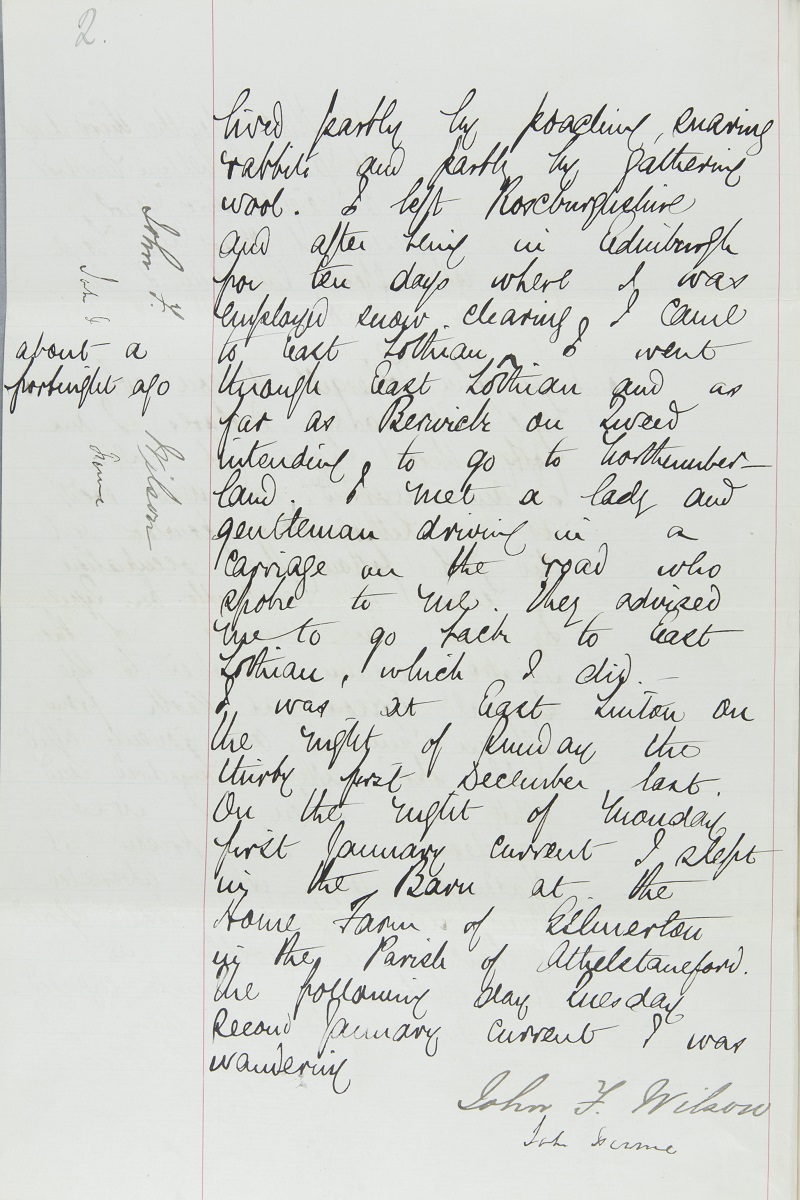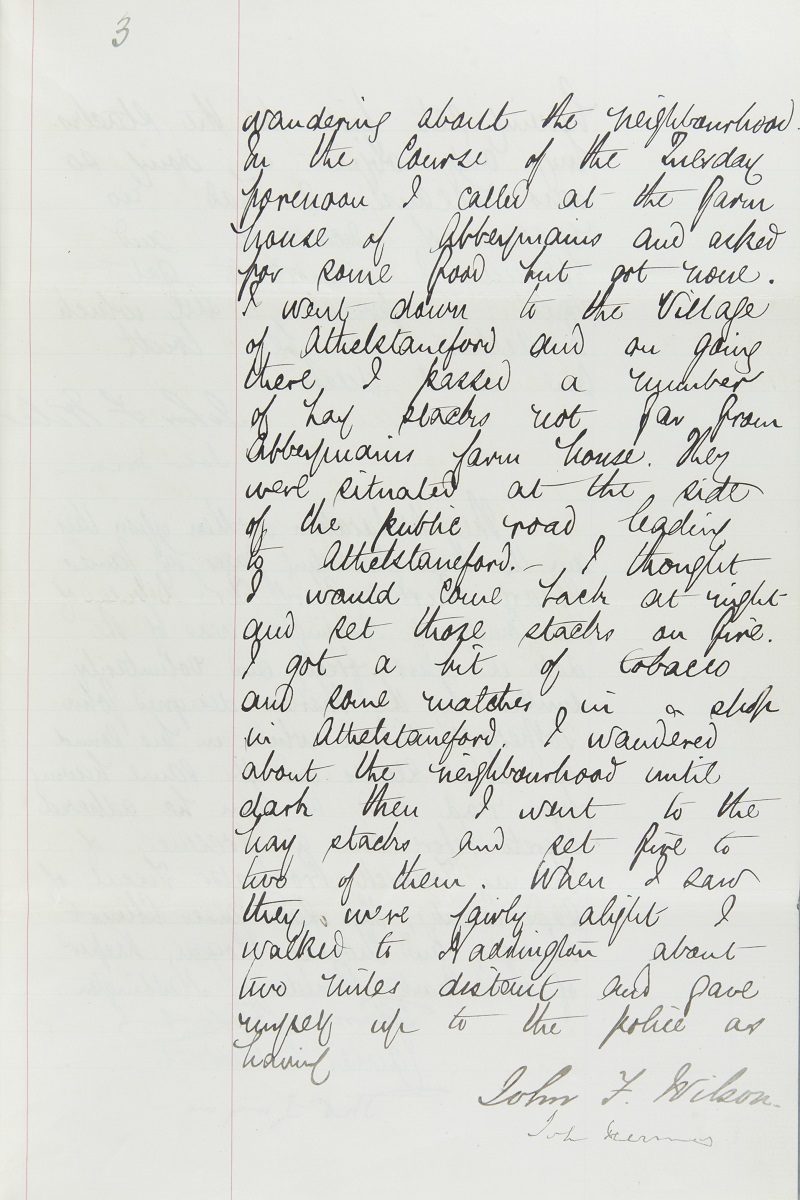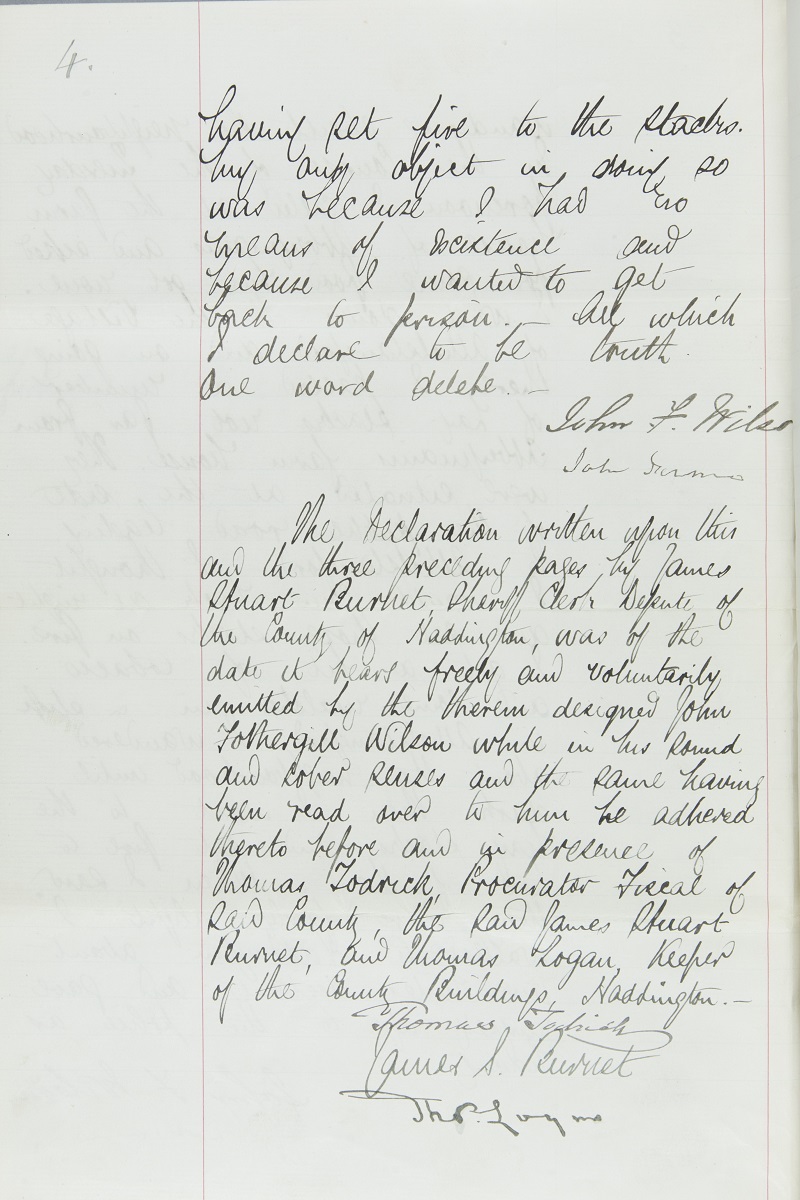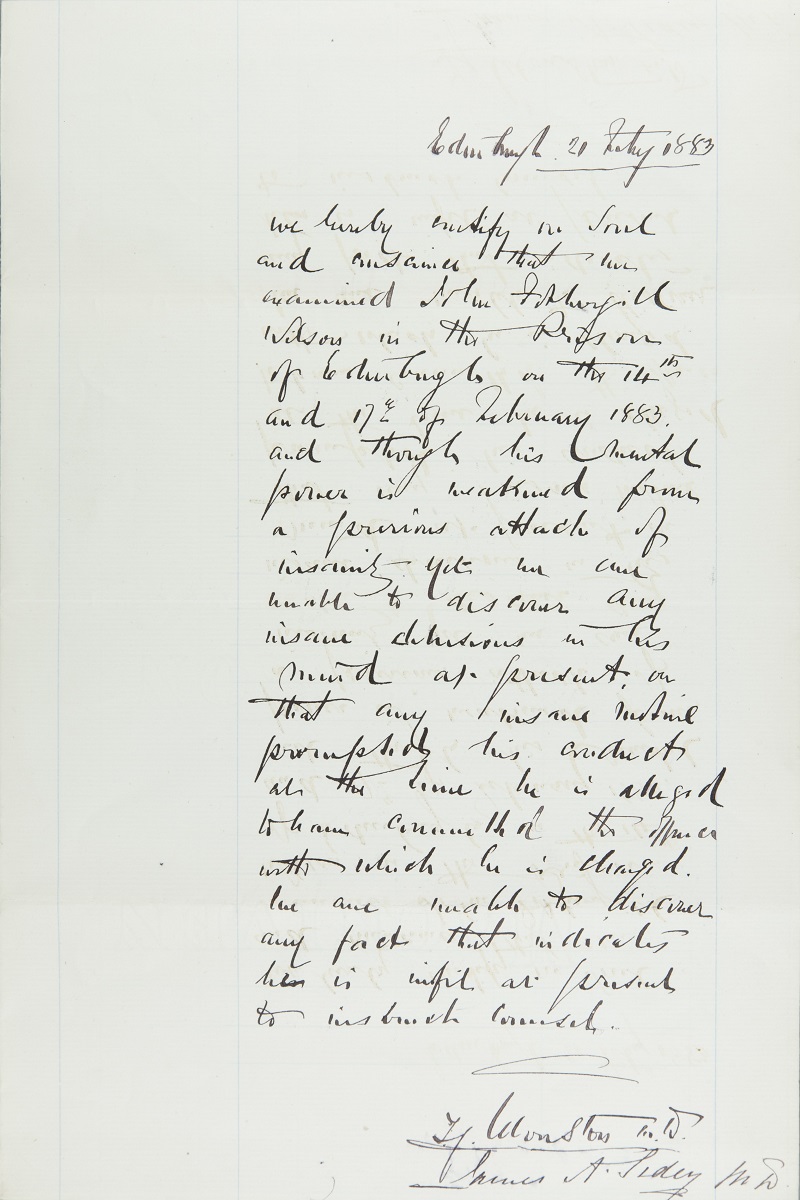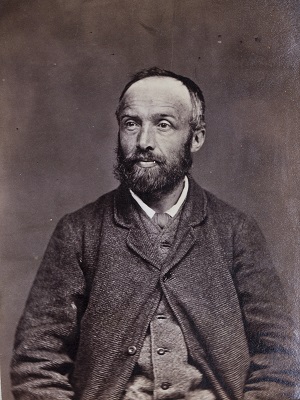
John Fothergill Wilson
Admitted 1878. Arson
Aged 38 years when admitted, John is the oldest of the nine prisoner-patients, seven of whom were in their twenties. Two-fifths of all Victorian admissions were in that cohort, one quarter in their thirties; nearly a fifth were under twenty. John came from a good family, his father a Newcastle surgeon. The doctor at Perth in 1878 seems to have respected him, saying he could converse in an intelligent and educated fashion on many topics. In contrast, most of those committed to Perth Criminal Lunatic Department (CLD) had limited literacy; some had been excluded from school. But John also had a long history of insanity. A 'rolling stone', John had already abandoned an apprenticeship, a wife, and his post in the Royal Navy before he was committed to the Middlesex County Pauper Lunatic Asylum at Colney Hatch in December 1870. The captain of a merchant ship on which Wilson had served, said that for three months he had been 'very violent at times without provocation'. His father secured his release and cared for him until his death in 1874. John quickly spent his inheritance and went 'on the tramp', favouring the prosperous farming areas of south-east Scotland. He lived a hand-to-mouth existence, begging, trapping animals, and stealing.
John may have been violent, but his obsession was fire. In 1877, 1878, and 1883 he was tried for multiple counts of 'malicious mischief', specifically arson of hay stacks at several farms east of Edinburgh. Usually after being refused food, he lay in wait until dark, fired the stacks, and retreated to a safe distance to watch them burn - sometimes ten tons at a time. He then gave himself up to police so he could be fed and sheltered in gaol.
The admitting officer of the General Prison at Perth noted in 1877: 'He is a thin spare little man with a good face and head, but there is evidently a want about him.' Nobody thought anything more needed said. Voicing bluntly an axiom of Victorian society, the governor stated: 'All the criminal classes are more or less weak minded.' He did not mean intellectually disabled, but failing to conform to broad psychological and moral norms. John served a routine 12 month sentence and was released.
At his next appearance for wilful fire-raising before the High Court of Justiciary on 3 June 1878 he was found unfit for trial. 'He is insane. Believes he has a guardian angel: a woman who is always whispering in his ears to do something. He set fire to places, to commit rape etc. Has been previously in asylums. Hears other voices.' When eventually able to plead he was sent to Perth CLD, which recorded him as particularly deranged during 1879: 'More demented. Says he has a number of steel springs in his abdomen attached to the ribs, and which may be wound up at will. Believes that everyone can read his thoughts, as he was told so by a Hindu conjuror when resident abroad. Requested me to circumcise him to prevent him from masturbating. Very delusive.' The medical men classed John as a maniac, but in March 1882 he was certified sane and escorted to Haddington prison for liberation.
A Haddington doctor, who had assessed John in 1876/7, 1878, and 1882, described him in 1883 as 'quiet...Has no delusions or hallucinations', concluding: 'although not strong minded, he is not in any sense insane'. The same two prominent psychiatric specialists who certified him mad in 1878 also stated, before yet another trial for arson in February 1883, that he was quite sane. John did himself no favours. In his pre-trial statement, later retracted, he justified arson by farmers being insured and 'an occasional fire was an excellent advertisement for an insurance company'. Unsurprisingly, the court saw John as remorseless and spiteful: bad, not mad. Without the protection of insanity, he got a sentence of five years penal servitude in a general prison in the spring of 1883.
Photograph of John Fothergill Wilson taken from the Criminal Lunatic Department Case Book
Credit: Crown copyright, NRS, HH21/48/2 page 73
John’s statement admitting to setting fire to hay stacks because ‘I had no means of subsistence and because I wanted to get back to prison’, 3 January 1883, p1
Credit: Crown copyright, NRS, JC26/1883/224
John’s statement admitting to setting fire to hay stacks because ‘I had no means of subsistence and because I wanted to get back to prison’, 3 January 1883, p2
Credit: Crown copyright, NRS, JC26/1883/224
John’s statement admitting to setting fire to hay stacks because ‘I had no means of subsistence and because I wanted to get back to prison’, 3 January 1883, p3
Credit: Crown copyright, NRS, JC26/1883/224
John’s statement admitting to setting fire to hay stacks because ‘I had no means of subsistence and because I wanted to get back to prison’, 3 January 1883, p4
Credit: Crown copyright, NRS, JC26/1883/224
Two Doctors certify that upon examining John ‘we are unable to discover any insane illusions in his mind.’ 21st February 1883
Credit: Crown copyright, NRS, AD14/83/13

